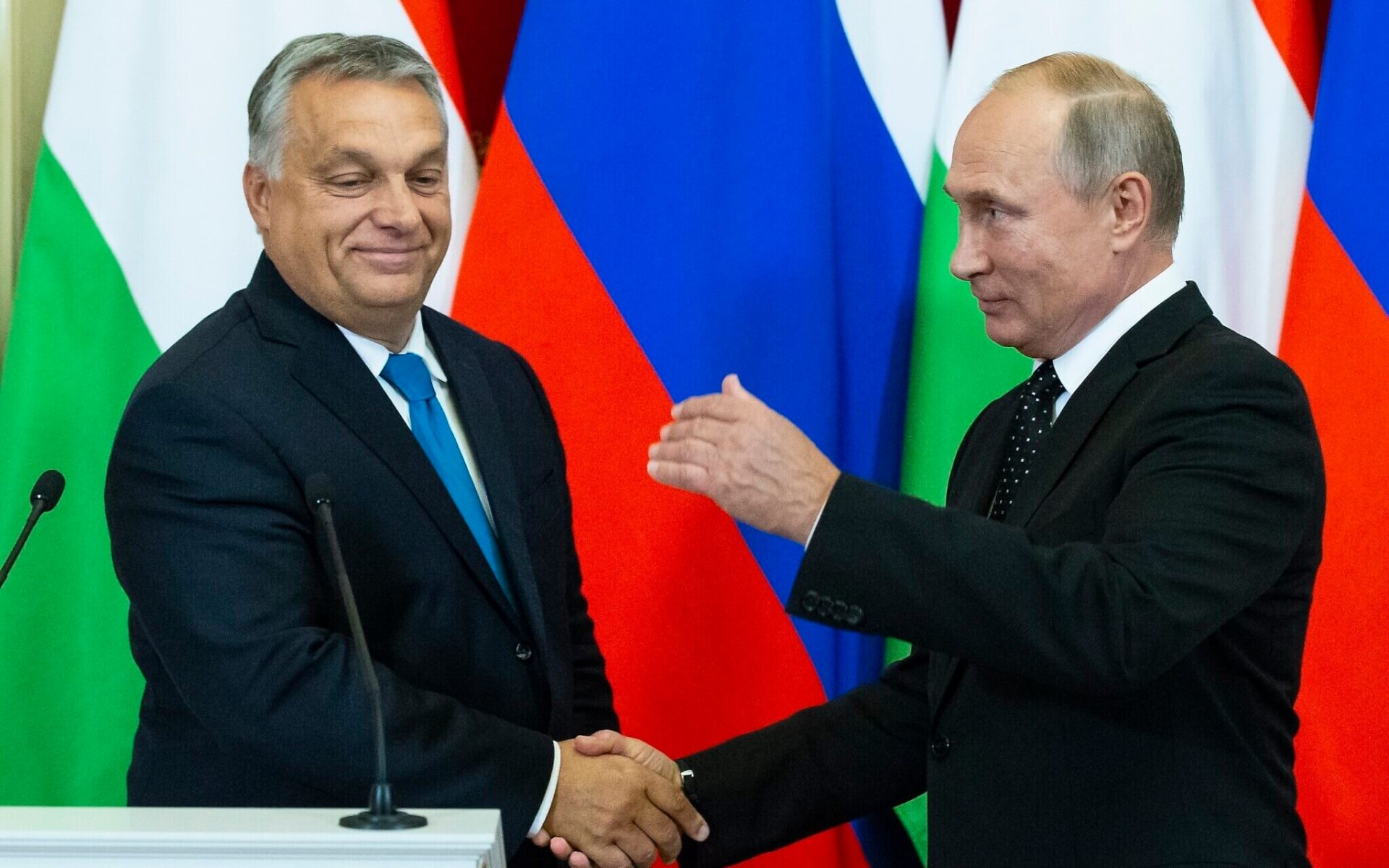Days after his re-election and victory in the Hungarian parliamentary elections, Prime Minister (PM) Viktor Orbán on Wednesday affirmed that his government is ready to pay for Russian gas in rubles—a departure from the European Union’s (EU) position on the controversial issue.
Orbán confirmed Hungary’s decision during a press conference, noting that if Moscow asks Budapest to pay in rubles, it will. Last month, Russian President Vladimir Putin announced that Moscow will demand “unfriendly states,” which includes EU members, to pay for their gas shipments in rubles instead of euros or dollars to offset the economic effects of Western economic sanctions on Russia that have frozen billions of dollars worth of foreign assets.
Talking about Hungary’s upcoming gas payment obligation to Russian state-owned energy company Gazprom, Minister of Foreign Affairs Péter Szijjártó said Budapest and Moscow are working on the technical aspects of the bilateral contract. “No one has a say in how we modify our own contract,” he added, referring to the EU’s calls for a “common response” from its member states against Russia.
Hungary’s reluctance to acknowledge Russia's responsibility for atrocities in Bucha strengthens Russia's sense of impunity and encourages it to commit new crimes. A proposal to hold peace talks in Budapest seems cynical. If Hungary wants to help, it must stop damaging EU unity.
— Oleg Nikolenko (@OlegNikolenko_) April 7, 2022
According to European Commission’s Eurostat site, Hungary is the largest importer of Russian natural gas among EU countries, importing 110.4% of its domestic natural gas needs from Russia. Last year, Budapest signed a 15-year contract with Gazprom, under which it receives 4.5 billion cubic meters of fuel per year via Gazprom’s Austrian and Serbian lines.
Other EU members, including Germany, France, Poland, Slovakia, Austria, Latvia, and Lithuania, have rejected Putin’s demand for ruble payments. In fact, Lithuania last week became the first European country to announce a complete break from Russian gas imports; it also downgraded diplomatic ties.
⚡️ Orban: Putin 'has preconditions' for meeting with leaders of Ukraine, France, Germany.
— The Kyiv Independent (@KyivIndependent) April 6, 2022
Hungarian Prime Minister Viktor Orban said that Russian President Vladimir Putin “should announce a ceasefire immediately,” however, he didn’t mention the “preconditions” mentioned.
Newly re-elected PM Orbán also said that he urged Putin to impose a ceasefire in Ukraine during a lengthy phone call on Wednesday. Moreover, he offered to host high-level talks between the leaders of France, Germany, Russia, and Ukraine in Hungary. He received a “positive” response from Putin regarding his suggestions. However, Orbán underscored that Putin has some pre-conditions that he needs to sort out with Ukrainian President Volodymyr Zelensky before he engages in the talks.
In recent years, Putin and Orbán have cultivated a strong relationship as Moscow and Budapest strengthened their trade ties. In this context, Orbán has continued to stand up for his Russian counterpart against the EU, refusing to levy sanctions on Russia in unison with other EU members. However, he has criticised Russia’s war in Ukraine, saying, “This is a war that the Russians started, they attacked Ukraine.” In this regard, Orbán’s support for Ukraine has been limited to humanitarian aid, refusing to provide any military assistance.
⚡️ Poland blames Germany for failure to impose tougher sanctions on Russia.
— The Kyiv Independent (@KyivIndependent) April 4, 2022
Polish Prime Minister says that Hungary is supportive of the new measures despite Viktor Orban’s friendly attitude towards Russia.
“It’s Germany that is the main roadblock on sanctions,” he said.
This refusal has irked Ukrainian President Volodymyr Zelensky, who recently said of Orbán: “He is virtually the only one in Europe to openly support Mr. Putin.” However, after his electoral victory, Orbán dismissed this as an attempt by international actors such as “the international left all around, the Brussels bureaucrats, the Soros empire with all its money, [and] the international mainstream media” to undermine his rule.

